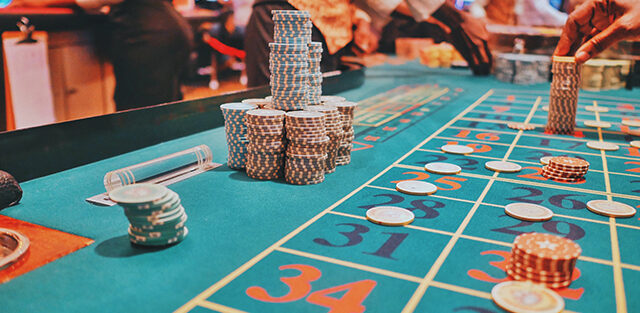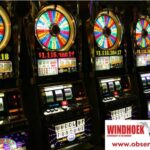Licensed gambling houses in Namibia must pay levies on their profits to the gambling board as required by law, High Court judge Nate Ndauendapo has ordered.
Ndauendapo has also ordered the Gambling House Association of Namibia and its members to pay levies on their profits from gambling activities with effect from December 2021, together with interest on those levies.
The order was made in a judgement in which Ndauendapo dismissed an application by the Gambling House Association of Namibia to declare that the minister of environment and tourism may not impose any levies on licensed gambling houses until all illegal gambling houses in Namibia have either been legalised or closed.
The association also asked the High Court, without success, to declare part of the Gaming and Entertainment Control Act of 2018, which came into operation at the start of December 2021, unconstitutional.
That part of the law gives the minister of environment and tourism the power to decide what other licences, in addition to licences like gambling house and casino licences that are mentioned in the Gaming and Entertainment Control Act, may be issued in terms of the act.
The association based much of its application on a settlement agreement in a previous High Court case in which it wanted the court to instruct the minister to act against illegal gambling house operators in terms of the Casinos and Gambling Houses Act of 1994.
In the settlement agreement, which was made an order of the court in June 2020, it was stated that the minister of environment and tourism shall not impose any levy on any duly registered gambling house until all illegal gambling houses in Namibia have either been legalised or closed.
In the application Ndauendapo dealt with, the association’s secretary, Jaco Horn, informed the court that the organisation’s members have about 580 gambling machines valued at about N$70 million under their control, but that they are confronted with stiff competition from illegal, unlicensed gambling houses.
ILLEGAL GAMBLING
According to Horn, the majority of the association’s members have experienced reduced revenues in recent years, which they attribute to the minister’s failure to ensure that the provisions of the Casinos and Gambling Houses Act, which was replaced by the Gaming and Entertainment Control Act of 2018, were properly implemented in respect of illegal gambling houses and bar gambling operators.
Horn also informed the court that gambling machines owned by unlicensed gambling operators outnumber machines under the control of licensed gambling houses by a factor of almost 10 to one.
Ndauendapo summarised some of the information that Horn provided to the court: “In sum, the gambling house industry is dominated by illegal gambling houses who are increasing their profit margins by unlawfully avoiding their obligation in terms of government-induced levies, value-added tax, taxes and applicable laws.
In contrast, legal gambling houses comply with applicable laws and effectively finance the entire gambling house industry.”
Horn alleged that not a single illegal gambling house was closed as envisaged in the settlement agreement that was made an order of the High Court.
In terms of a regulation under the 2018 law, gambling house licence holders have to pay 10% of their profits from gambling operations to the gambling board.
Ndauendapo noted in his judgement that the settlement agreement was overtaken by the 2018 act, which introduced a new dispensation to regulate gambling in Namibia.
The gambling board was not a party to the case in which the settlement agreement was reached, and with the new act having come into force the court cannot still uphold and enforce the settlement agreement, Ndauendapo said.
He added: “By upholding the settlement agreement, the judiciary will be usurping the powers delineated by the Constitution to the legislature.”
With the introduction of the 2018 law, the 1994 Casinos and Gambling Houses Act was abolished, and, consequently, the settlement agreement and court order of June 2020 have fallen away by operation of law, Ndauendapo said as well.
He noted that in terms of the 2018 law, the minister may exempt certain categories of gambling machines, persons or activities from having to comply with the law.
“The only way to be exempted from paying levies is to apply to the minister for an exemption from paying levies. The [association] and their members have not submitted such an application to the minister,” Ndauendapo said.
He dismissed the association’s application against the minister of environment and tourism, the gambling board and other parties with costs.
The association was represented by senior counsel Reinhard Tötemeyer, assisted by Deon Obbes.
The minister and other respondents were represented by senior counsel Vincent Maleka, assisted by Eliaser Nekwaya.




